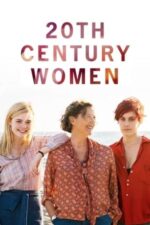Beyond "Girl Power": Exploring Feminism on Film – And Why It Still Matters
Okay, let's talk feminism in cinema. Now, when I say that, I don’t just mean films with female leads (though those are a great starting point!). True feminist filmmaking goes deeper than surface-level representation; it actively interrogates power structures, challenges patriarchal narratives, and centers the experiences of women – particularly those historically marginalized. It's about how stories are told, not just who’s telling them.
Think about "Put Me In a Movie." On the surface, it seems like a sweet coming-of-age story. But what resonated with me wasn't just the protagonist finding her passion for acting; it was the film’s quiet acknowledgement of how limited options often are for young women in rural communities. It subtly highlights the societal pressure to conform and the bravery required to break free – a classic feminist theme, even if not explicitly stated.
Then you have something like "Faceless After Dark," which takes a completely different approach. The film isn’t about feminism directly, but it uses the horror genre to explore female vulnerability and agency in a world obsessed with image and performance. Bowie's character is forced to confront her own anxieties about fame and control – themes that are inherently feminist when you consider how women are often objectified and their voices silenced within the entertainment industry. It’s a chilling reminder of the power dynamics at play, even (and especially) in spaces seemingly dedicated to creativity.
The documentary "This Changes Everything" is vital viewing because it pulls back the curtain on Hollywood's systemic sexism. Seeing those interviews with actors and executives – hearing firsthand accounts of the barriers women face – is incredibly powerful. It’s a stark reminder that progress isn't automatic; it requires active dismantling of ingrained biases.
And let’s not forget films like "The Bostonians," which, while set in the 19th century, brilliantly portrays the burgeoning suffragette movement and the complexities of female desire within a restrictive social context. It shows us how feminism wasn't just about political rights; it was about reclaiming agency over one's own life and love.
Finally, "Working Girls" is a particularly poignant example – it’s a film that doesn’t shy away from difficult realities. The protagonist’s choices are born out of economic necessity, forcing her to navigate a world where ambition and survival often clash. It’s a raw and honest portrayal of the pressures women face in pursuing their dreams.
Feminist cinema isn't just about "girl power" – it's about challenging the status quo, amplifying marginalized voices, and creating space for stories that have been historically silenced. And honestly? We need more of it. It’s not always easy viewing, but it is essential viewing.
What films do you think best embody feminist themes? I'd love to hear your thoughts!







































